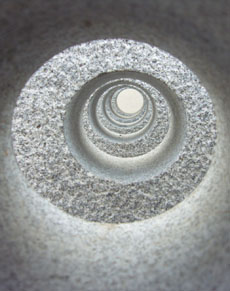STANISLAV PREDOTA studied singing at the Prague Academy of Music and Performing Arts. He endeavoured to bring less well-known music back to life which first led him to the Dyskanti ensemble in Ceske Budejovice (1982–1992), specializing in Czech vocal Renaissance polyphony. He participated in numerous tours to foreign countries and sang in a number of recordings of the early Baroque era with the Musica Antiqua Praha ensemble (1990-1996), an ensemble which pioneered authentic interpretation of ancient music in the Czechia.
Stanislav Predota is one of the founders, a former concert manager and till today a member of the Schola Gregoriana Pragensis ensemble, which specializes in Gregorian chant and early vocal polyphony. The ensemble succeeded in reviving interest in early vocal genre, which stands at the beginning of all European music. Schola Gregoriana Pragensis produces a surprisingly rich Czech repertoire that is respected by listeners both in the Czech Republic and abroad, and at the same time is highly praised by Czech as well as international critics.
In 1998-2008 Stanislav Predota was the artistic leader of the Fraternitas Litteratorum ensemble which was specialized in period interpretation of 15th and 16th century vocal polyphony preserved in Czech archives. The ensemble worked closely with musicologist and editor Martin Horyna, who ranks among the foremost Czech specialists in 15th and 16th century Renaissance polyphony and performed unique compositions, often pieces recently discovered and presented to modern audiences for the first time. The CD “Caesar vive!” (Supraphon 2007) received the highest award „Choc du Monde de la Musique“ from the prestigious French monthly Le Monde de la Musique (May 2007).
Furthermore, Stanislav Predota is often invited as the vocal soloist to cooperate with other ensembles. With Musica Florea he performed and recorded Missa sanctissimae Trinitatis by J. D. Zelenka (the CD received the highest award from the French magazine Diapason); with Musica Salutaris he sang the title role in Scarlatti’s oratory Giuditta, Lortzing’s opera Die Opernprobe (recorded for Czech Television) and in the first documented opera Euridice by J. Peri (broadcasted on Czech Television and Czech Radio). In addition, he cooperated with ensembles such as Collegium 1704, Doulce memoire, Teatro lirico (artistic director – S. Stubbs, e.g., the opera Il marito ama piu by A. Draghi), etc.
Stanislav Predota is also devoted to song literature having released CDs with complete song cycles by Dvorak and Janacek, and recorded a selection of Janacek’s Moravian Folk Poetry for German Television. To the last activities he counts the performing in L’Orfeo by Monteverdi (National Theatre Praha) and the interpretation of Romantic song repertoire with the fortepiano player Petra Matejova. |



